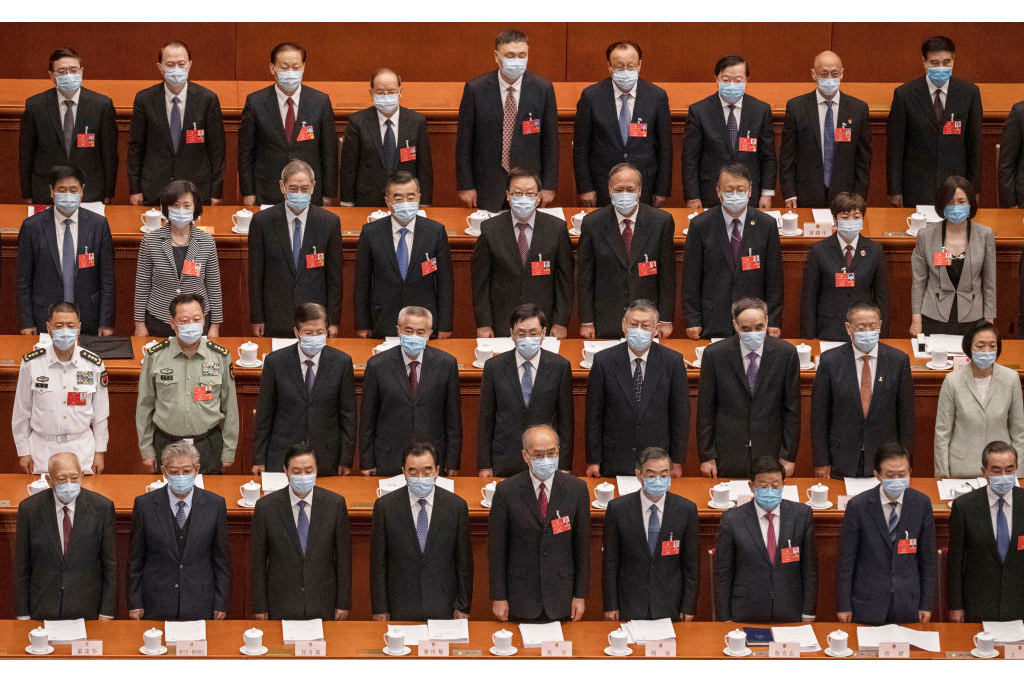Is Cui Tiankai, the Chinese ambassador to the United States, Hillary Clinton in drag? I ask because when he takes to the pages of the Washington Post to lecture us that ‘It is time to end the blame game’ with respect to China’s role in helping to spread the coronavirus, I could almost believe I was back at that Congressional hearing after Muslim lunatics attacked the American consulate in Benghazi and murdered four Americans, including the US ambassador. The dulcet strains of the then Secretary of State Clinton skirling ‘at this point what difference does it make?’ are ringing in my ears. It’s ‘time to move on’, she said later, just as China’s ambassador half-pleaded, half-warned about the ‘mindset’ urging a ‘decoupling’ of America from China. ‘The United States would not emerge as a winner from this scenario,’ he said.
Ambassador Cui writes that: ‘China has done its best to share information about the virus.’ Ha, ha, ha. In fact, it dissembled about the nature of the virus, obscuring the date of the first cases, insisting that there was no human-to-human transmission, even as, in mid-January, it ordered its consulates around the world to stock up on face masks and other protective gear in anticipation of a global outbreak. Chinese doctors and scientists who tried to sound the alarm early on suddenly disappeared, even as the regime destroyed evidence and stonewalled requests from western scientists for firsthand information about the earliest victims. Ambassador Cui is paid to lie for his country. We do not have to be naive and believe him.
But many of us do. Much of the western media is behaving like the World Health Organization, i.e., like a wholly owned subsidiary of the Chinese Communist party. As Bill Gertz points out in his just-published book How China’s Communist Party Made the World Sick, China’s behavior regarding the coronavirus is like the Soviet Union’s behavior after the deadly explosion at the nuclear reactor in Chernobyl. ‘The Chinese lied to cover up a major natural disaster — only now the damage is not simply the irradiation of an area in and around a city in Ukraine. The Chinese have inflicted grave damage on the world economy and put half the world’s population out of work, at least temporarily.’
There is certainly some truth to the argument that free trade is a civilizing force. There are no flies on Adam Smith. But its beneficent effects depend absolutely on a principle that Donald Trump has been quick to insist upon: reciprocity. Free trade is not free if only one side honors its contracts, if private property is subject to confiscation, if dealings among parties are not honest and open.
At least since Richard Nixon’s overtures to China in the 1970s, the hope was that trade with the US and other parts of the free world would soften China’s totalitarian ideology. For a time, it seemed to be working. But since the ascension of Xi Jinping in 2012 (and indeed for years before), China has ruthlessly exploited the openness of western countries for its own purposes while maintaining an increasingly harsh system at home.
I won’t go into the horrific story of more than a million Uighurs herded into concentration camps and subjected to forced labor and systematic abuse in the name of ‘reeducation’. Think only of the recent introduction of a regimen of ‘social credit’ throughout China. The implementation of this system took some western observers by surprise. It shouldn’t have. Totalitarian regimes have always endeavored to control every aspect of their citizens’ lives. Communism, as Lenin observed, means keeping track of everything. Want to ride a bus? Open a bank account? Get a job? Visit a far-away friend? Let’s take a look at your docility index and good behavior, Comrade, and then we’ll tell you what you can and cannot do.
The dream of total control took a big step forward with the perfection of advanced surveillance technology. Cameras are everywhere, feeding images to computers that record, docket and apply sophisticated facial recognition to the party apparat. In China, Big Brother really is watching you.
***
A print and digital subscription to The Spectator is just $7.99 a month
***
It turns out he is increasingly watching us, too. There are nearly 400,000 Chinese students in American universities. Thanks to Article 7 of the Chinese National Intelligence Law of 2017, each of these students is required to ‘support, assist and cooperate with state intelligence work according to law’. In other words, the United States is home to some 400,000 potential spies from China. As I write, the FBI is investigating more than 1,000 cases of Chinese theft of US intellectual property. According to FBI director Christopher Wray, ‘They’re not just targeting defense-sector companies. The Chinese have targeted companies producing everything from proprietary rice and corn seeds to software for wind turbines to high-end medical devices.’ The price tag for this theft, he estimates, is anywhere from $300 billion to $600 billion.
Ambassador Cui warns against the ‘decoupling’ of the Untied States from China. I think it cannot happen fast enough. The United States has become increasingly dependent on China to supply critical pharmaceuticals, from antibiotics to blood-pressure and heart medicine and beyond. In March, just as the coronavirus panic was gearing up in the United States, an article in a Chinese state-run media outlet warned that China ‘could impose pharmaceutical export controls which would plunge America into “the mighty sea of coronavirus”.’
It is beyond time to rethink our relationship with China, to level the playing field and demand honesty and reciprocity in our dealings. As Bill Gertz notes in his book, ‘It is now clear that decades of international engagement and cooperation with Communist China was a mistake that seriously undermined fundamental American values of freedom, democracy, openness, honesty, and free markets… The time to act is now.’
This article is in The Spectator’s June 2020 US edition.


















